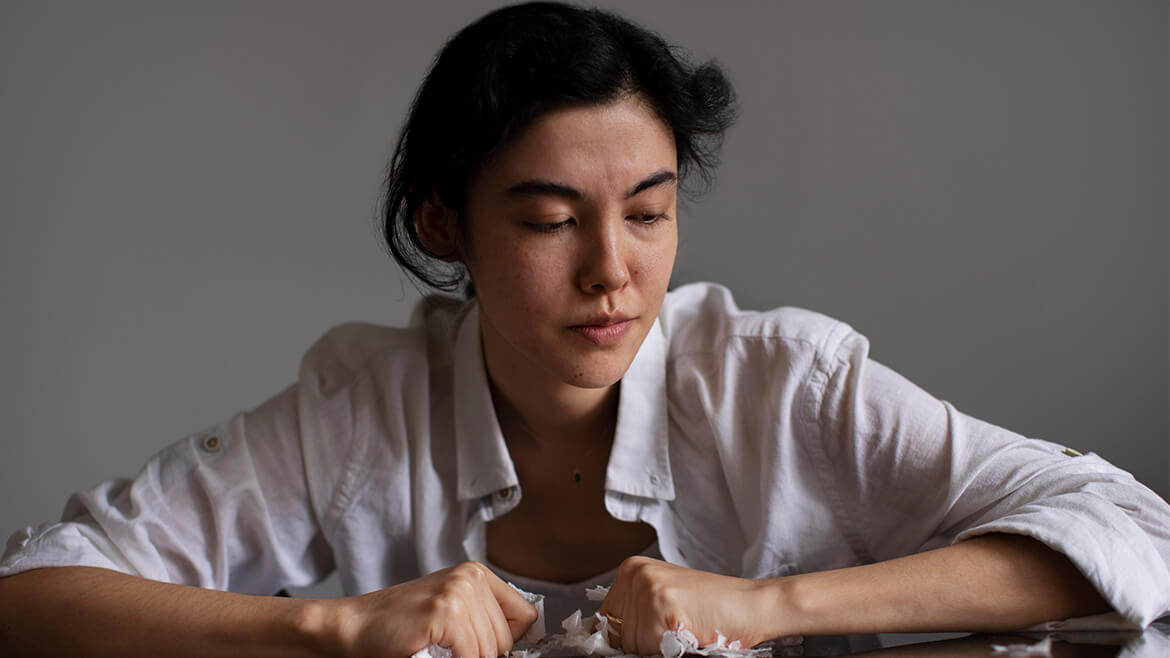Healing from Within: Way to Overcome Borderline Personality Disorder Through Meditation
(Based on the live discourse of Param Dwij)
(परम द्विज के प्रवचन पर आधारित)

In recent decades, it has been observed that psychiatrists and psychologists have massively and strongly recommended meditation practices in their treatment, as it has been seen as applicable to many different mental illnesses, including major chronic pain, depressive disorder, generalised anxiety disorder, and, most notably, borderline personality disorder, which has been so prevalent in this growing world of chaos and dilemma.
People need to understand what borderline personality disorder (BPD) is, the reason behind it, the prominent symptoms, and how meditation can help people overcome it.
It is a type of mental health problem that includes patterns of unstable relationships, impulsivity and intent, emotional reactions, and inappropriate anger. It is a dangerous disorder that can lead to cancerous decisions in the patient.
There is a false assumption that BPD is virtually untreatable and that people who are under the influence cannot steadfastly overcome it. However, the third wave of cognitive behavioural therapies, through the practice of meditation, can lead to a transformative change in self-identity and play an essential role in treating this condition.
It would be unfair to say that meditation is adequate to overcome and treat BPD; it may be helpful in the approach to holistic well-being as it is a complex mental health condition that generally requires a comprehensive treatment plan that may comprise therapy, meditation, and a change of lifestyle.
Living Dwij recommends a few meditation practices to overcome borderline personality disorder. (BPD)

To Find Expert Guidance: It is essential to find a professional with expertise in treating BPD who can lead you through the whole process, as they know how to incorporate meditation into your treatment.
Empty-Mindedness Meditation: People can go to this particular type of meditation to centralise their attention and focus on the present moment without prejudice or judging it. It can help people confront and overcome what a person has to undergo in BPD by reducing impulsivity, reducing emotional reactivity, and improving emotional regulation skills. (Hyperlink)
Practice Regularly: Going for meditation is not a one-day job. It requires consistency—setting aside a specific hour each day to practice it calmly. Initially, they can struggle to sit, so they can go for a shorter duration and increase the session duration as they gain more control over themselves and find it comfortable. Initially, 10 to 15 minutes of meditation is an ideal session.
Guided Meditation: Those who are beginners and tyro for meditation can go through guided meditation, which can take them step by step, giving instructions and gentle guidance, providing an easy way to stay stuck with their point of unwavering focus. People can find a guided meditation on Dwij Radio, designed particularly for BPD and emotional regulation. (Hyperlink Dwij Guided Meditation)
Focus on self-compassion: Developing a sense of kindness, compassion, empathy, and acceptance for oneself can help massively in BPD, as it is generally associated with self-criticism and negative self-image. Practising self-compassion and self-love in the meditation session is highly advisable, which will dissolve all the toxic emotions and bring about a transformative change in oneself.
Spiritual Meditation: Spirituality is a great source of self-transformation and overcoming any hardship in life. The world has a massive treasury of sacred literature across religions and spiritual traditions that, somewhere, leads to exploring the possibility of self-realisation. It is advisable to meditate upon them, rowing its pages, imbibing teaching into their traits. It helps raise consciousness, increase moral resilience, and uplift themselves spiritually above self-destructive, harmful ideas and low self-esteem, which are common to borderline personality disorder.
Body-Cantered Meditation: One of the major difficulties, that BPD can have, is emotional regulation and body awareness. In that sense, Body-cantered meditation can be helpful for people seeking to explore following the practice of body scanning and progressive muscle relaxation; even yoga can be beneficial in this case, which can foster a greater sense of association with the body and provide peace.

Incorporate Mindfulness into Your Daily Routine. Meditation is not limited to a particular duration of the day. It extends beyond and can be practised while executing daily routine activities by incorporating mindfulness by paying attention to the sensations, thoughts, and emotions that arise while working. It can help people nurture self-awareness and improve their ability to regulate emotions throughout the day.
Always keep in mind that meditation is not a replacement for professional treatment of borderline personality disorder – it is instead a complementary practice that helps people to increase their resilience ability and support their overall well-being – emotional, mental and physical. It is always advisable to consult a therapist or a psychologist to make any kind of change.



